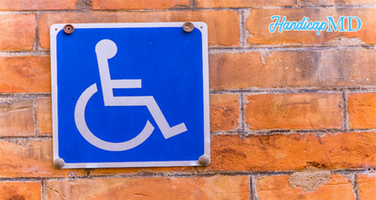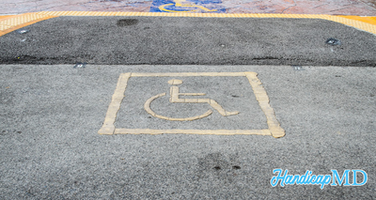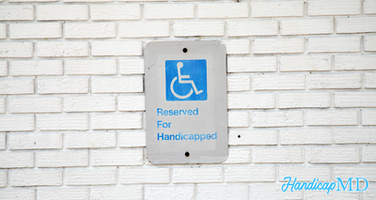
Understanding the Eligibility Criteria for a Handicap Placard in Colorado
Introduction
Handicap passes play a crucial role in ensuring that individuals with disabilities have convenient access to parking spaces and services. In Colorado, as in many other states, specific eligibility criteria determine who can qualify for a handicap pass. This article will provide you with a comprehensive understanding of the eligibility criteria for a handicap placard in Colorado, the application process, renewal procedures, and more.
What is a Handicap Placard?
A handicap placard is a special parking permit that allows individuals with disabilities to use designated accessible parking spaces. These handicap permits are typically displayed on the rearview mirror of a vehicle or on the dashboard. They come in two main forms: temporary and permanent.
The Importance of Handicap Placards
Handicap permits are essential for people with disabilities as they enable them to access disabled parking spaces that are closer to their destination. This convenience is particularly vital for those with mobility issues, as it reduces the distance they need to travel and provides better access to public facilities.
Eligibility for a Handicap Placard
Obtaining a disability permit in Colorado requires meeting specific criteria to ensure that the system benefits those who genuinely need it. Let's take a closer look at the eligibility requirements:
Residency
To be eligible for a Colorado handicap placard, you must be a resident of the state. Proof of residency will be required when applying, such as a driver's license or utility bill in your name.
Medical Certification
A medical professional, like a physician, nurse practitioner, or chiropractor, must certify that you have a qualifying medical condition. This certification is a crucial step in the application process.
Qualifying Medical Conditions
Permanent Disabilities
To qualify for a permanent disability pass in Colorado, an individual must meet one or more of the following criteria:
- Unable to walk without assistance: This includes the use of mobility aids such as crutches, braces, wheelchairs, or other devices.
- Limited mobility: If a person's mobility is significantly impaired, they may be eligible for a disability pass.
- Lung disease: Those with severe lung disease are also considered for a pass.
- Specific health conditions: Individuals with specific health conditions that limit their ability to walk, such as heart disease or severe arthritis, are eligible.
Temporary Disabilities
Temporary permits are available to individuals with temporary disabilities. These may include:
- Recovery from surgery: Those recovering from surgery that impairs mobility may qualify.
- Legally blind: Individuals who are legally blind may also be eligible.
- Temporary conditions: People with temporary conditions that make walking difficult, such as a broken leg, can apply.
Eligibility for Organizations
In addition to individual permits, organizations that transport individuals with disabilities may qualify for an organization permit.
Temporary or Permanent Placard
You can obtain either a temporary or permanent one. Temporary passes are issued for short-term disabilities, while permanent ones are for long-term conditions.
The Application Process
Now that you understand the eligibility criteria, let's delve into the application process:
Completing the Application
To apply for a disability placard, you'll need to complete the Application for Disability Placards (DR 2219) form. This form can be obtained from your healthcare provider or downloaded from the Colorado Division of Motor Vehicles (DMV) website.
Medical Certification
As mentioned earlier, you'll need your healthcare provider to certify your medical condition. They will complete and sign the appropriate section of the DR 2219 form.
Submitting the Application
Once you've filled out the application and obtained the necessary medical certification, you can submit it to your local DMV office. Be sure to bring valid identification and proof of residency.
Fees
There is no fee to obtain a handicap pass in Colorado. However, there may be fees associated with accessible parking permits. Check with your local DMV office for details.
Frequently Asked Questions
Q: Can I use my disability permit in other states? A: Yes, disability permits are generally recognized across state lines. However, it's essential to follow the specific parking rules of the state you're in.
Q: How long is a temporary pass valid for? A: Temporary ones are typically valid for up to 90 days.
Q: Can I renew my disability permit? A: Yes, you can renew by following the same application process as for a new placard.
Q: What do I do if my pass is lost or stolen? A: If your permit is lost or stolen, you can obtain a replacement by contacting the DMV and providing the necessary information.
Q: Are disability permits transferable to other individuals? A: No, these are not transferable between individuals. They are issued based on the individual's specific medical condition.
Q: How can I report misuse of a pass? A: If you suspect someone is misusing a disability pass, you can report it to your local law enforcement or DMV office.
Conclusion
Understanding the eligibility criteria for a handicap placard in Colorado is crucial for residents and visitors who require this service. By following the guidelines outlined in this article, you can navigate the application process with ease, ensuring that those who genuinely need these accommodations have access to them.
Remember, this information is intended to be a helpful resource, but always consult with the Colorado DMV or a healthcare professional for the most up-to-date and accurate information regarding handicap placards.
.png)






